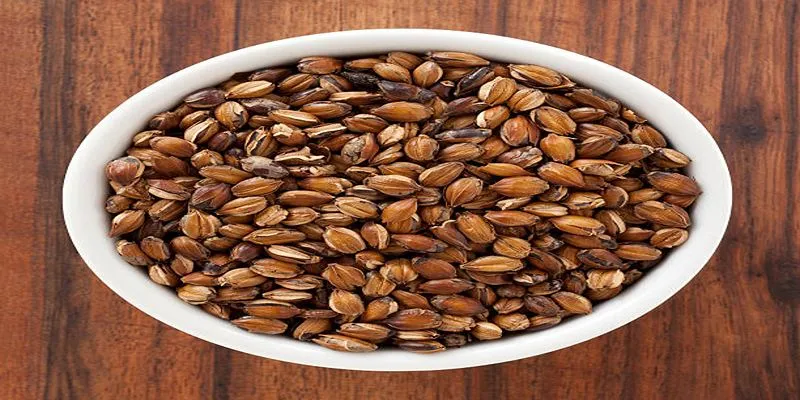Weight Maintenance for Women Linked to Exceptional Longevity, Research Shows
Maintaining a healthy weight is crucial for women’s overall health and longevity. Research has consistently shown that women who effectively manage their weight tend to live healthier and longer lives. This article explores the impact of stable weight maintenance on exceptional longevity and highlights specific health aspects related to women. We will delve into research findings that underscore the importance of maintaining a healthy weight throughout life.
Understanding Weight Maintenance
‘Weight maintenance’ refers to the process of keeping a healthy body weight, either after losing weight or by maintaining the same weight through healthy lifestyle choices. For women, this can be particularly challenging due to hormonal changes, societal pressures, and lifestyle shifts. Effective weight maintenance requires a balanced diet, regular physical activity, and behavioral strategies. Recognizing one’s body cues, identifying triggers for emotional eating, and establishing healthy habits are essential for long-term success. By building a strong foundation for weight control, women can increase their chances of living healthier and longer lives.

It’s important to be mindful of portion sizes and meal timing to maintain a stable weight. Research indicates that women who focus on these factors are more successful in weight management. Additionally, adopting a long-term approach to eating, rather than short-term dieting, is crucial. This strategy reduces the risks associated with weight fluctuations due to inconsistent diets. Implementing gradual dietary changes can foster healthier habits that last a lifetime.
- Mindful Eating : Practicing mindful eating enhances awareness of hunger cues and prevents overeating.
- Personalization : Tailor weight management strategies to individual preferences and lifestyle.
Research Findings on Longevity and Weight
Numerous studies have examined the relationship between stable weight maintenance and longevity, particularly in women. A pivotal study in the Obesity Journal found that women who maintained a healthy body mass throughout adulthood had significantly lower risks of chronic diseases, such as heart disease and diabetes, which are leading causes of death. Another study highlighted that women experiencing frequent weight fluctuations, often called weight cycling, faced higher mortality risks than those with consistent weight. These findings emphasize the importance of consistent weight management in promoting longevity.
Moreover, research indicates that the age at which women begin focusing on weight control can impact long-term health outcomes. Women who prioritize healthy weight management early in life often enjoy better health and longer lifespans. Genetics also play a crucial role; genetic predispositions can influence body mass and metabolism, affecting overall health and lifespan.
- Genetic Factors : Genetic predispositions can influence weight management strategies and outcomes.
- Early Intervention : Starting weight management efforts early in life yields lasting health benefits.
Impact of Lifestyle Choices
Lifestyle choices play a significant role in achieving and maintaining a healthy weight. A balanced diet rich in fruits, vegetables, whole grains, and lean proteins provides the essential nutrients to support a healthy weight. Regular physical activity is also crucial for maintaining weight stability and overall health. By engaging in both aerobic exercises and strength training, women can achieve their desired weight levels while enhancing overall well- being. Additionally, avoiding excessive alcohol consumption and tobacco use supports weight maintenance, contributing to a longer, healthier life.
Another critical aspect of lifestyle choices is sleep quality. Studies suggest that inadequate sleep can disrupt hormones regulating hunger, making weight maintenance more challenging. Therefore, women should prioritize good sleep habits and aim for regular, restorative rest as part of their weight management efforts. Stress management practices, such as yoga or meditation, can also enhance lifestyle health by addressing stress-related eating habits.
- Sleep Quality : Quality sleep supports hormonal balance and aids in weight management.
- Stress Management : Incorporating stress reduction techniques improves overall health and weight maintenance efforts.
Mental and Emotional Aspects of Weight Management
The mental and emotional aspects of weight management are as important as physical health. Many women face societal pressures regarding body image, which can lead to unhealthy eating behaviors and emotional distress. Mindfulness, stress management, and self-compassion techniques can help address these emotional challenges. Understanding the psychological triggers for overeating or poor food choices is vital for developing successful weight management plans. It’s recommended that women seek support from friends, family, or professionals to create a supportive environment that aids in maintaining a healthy body weight.
Engaging in activities that enhance self-esteem and body positivity can also improve mental well-being. Women who cultivate a positive self-image are often more motivated to maintain healthy habits. Additionally, it’s essential to consider the influence of social media on body image and eating habits. Limiting exposure to negative influences can support healthier self- perceptions and more effective weight management.
- Positive Self-Image : Developing a positive self-image enhances motivation for healthy weight maintenance.
- Social Media Awareness : Being mindful of social media influences helps maintain a healthy body image.
The Role of Hormones in Weight and Longevity

Hormonal changes significantly impact women’s weight management, especially during life stages such as puberty, pregnancy, and menopause. These changes can lead to weight gain or difficulties in maintaining a stable weight. Research indicates that hormonal imbalances can cause increased abdominal fat, particularly during menopause, which carries associated health risks. To navigate weight maintenance effectively, women must understand these changes. Seeking medical advice can provide tailored strategies that consider hormonal health, supporting longevity and a healthy weight.
Furthermore, hormonal health extends beyond reproductive hormones. Both thyroid function and insulin sensitivity play crucial roles in weight management. Women should recognize symptoms of hormonal imbalance, such as unexplained weight changes or fatigue, and seek appropriate evaluations from healthcare professionals. Regular monitoring of hormone levels can guide necessary lifestyle adjustments and treatment plans.
- Thyroid Health : Regular check-ups for thyroid function aid in effective weight management.
- Insulin Sensitivity : Understanding insulin’s role in metabolism offers insights into weight management strategies.
Conclusion
In conclusion, maintaining a healthy weight is vital for women’s longevity. This connection highlights the importance of balanced nutrition, regular exercise, mental well-being, and hormonal health. By adopting a holistic approach to weight management, women can enhance their chances of living longer, healthier lives. While challenges may arise, fostering a supportive environment and seeking knowledge can empower women to prioritize their health and achieve their longevity goals. Embracing weight maintenance as a lifelong commitment can inspire women to make informed choices that positively impact their overall well-being.











